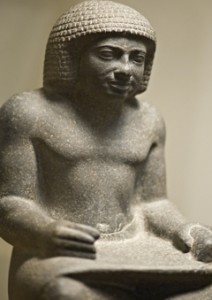
I thought I’d write a different sort of post this time: a round-up of some of the best recent math teaching blog posts.
I share these posts via my Twitter and Facebook accounts already, but those posts soon move off the top of the stream, and are lost pretty much for ever. But by sharing here on the blog, these links can remain accessible for much longer.
By the way, I’d love to hear what you think; I am planning to write similar posts in future weeks, if they are useful and interesting to you, my dear reader.
Math Blog Post Roundup
Fawn Nguyen [Teaching Math in Middle School] > Always Sometimes Never
- Students sort mathematical statements into three piles: those that are always true, those sometimes true, and those that are never true.
Brilliant math activity for any grade from @fawnpnguyen: Always Sometimes Never ow.ly/9PnSB#mathchat
I linked to this article on March 24, 2012 via Twitter, and it was far and away my most clicked tweet all week. I guess other teachers agree that this is a wonderful article, explaining a simple activity that any math teacher could use with their class. Fawn’s students worked on statements which included “p + 12 = s + 12″ and “If you divide 12 by a number, the answer will be less than 12”. I love these statements, and the activity, for several reasons:
- the statements themselves are easy to understand at first, which will help develop “buy-in” by students.
- I would expect just about every student to be happy to get started.
- None of the statements can be answered immediately via some standard routine procedure.
- Each one requires a level of intuition, investigation, even lateral or creative thinking.
- For many statements, there is an obvious answer; and like many obvious answers, it isn’t always true.
David Ginsburg [Coach G’s Teaching Tips] > There Are No Stupid Questions, But…
- How teachers respond to students’ questions may have a big impact on how likely students are to ask questions in the future.
Another great post from Coach G: There Are No Stupid Questions, But… ow.ly/9PmVZ
David is another blogger whose writing I admire. He manages to get right to the heart of an issue for teachers, grab your attention, and then get the reader to honestly think about his or her own teaching. This particular post is a great one if you care about the impact your comments have on students’ feelings of well being and self esteem.
I have to say, this isn’t really “Questioning 101”, but more like “Questioning 404”, for teachers or preservice teachers who have understood the basics of eliciting students’ responses, but realize that there is a higher standard to aim for. Key statement by David: “[students will] never feel such freedom unless we as educators value their input rather than just evaluate it”. Amen!
Malke [The Map is Not the Territory] > All in Good Time
- The author’s 6-year-old daughter asks to be taught to play the penny whistle.
Music, math, reading, kids develop at different rates > All in Good Time @mathinyourfeetow.ly/9A9bb #edchat
Malke always writes interesting posts, illustrated with lovely photos of her daughter and the activities they share. This post caught my attention because of the focus on playing music, and also learning math, two of my loves. The key point: given the freedom to choose when to learn something, children will often reveal when they are ready, “all in good time”.
Ms Cookie [Math Teacher Mambo] > Shadows on Planet Earth….
- Ms Cookie finds out that her students’ difficulties with similar triangle questions had less to do with the math, and more with fundamental misconceptions about shadows.
Not understanding shadows interferes with learning similar triangles… from Ms Cookie http://ow.ly/9Pwmn #mathchat #scichat
I love science as well as math, and so this post was a fascinating one to me. Students really do struggle with scientific concepts quite often, but even so I was surprised at their ignorance about shadows and how they are caused. How often do we think difficulties in math problem solving are caused by lack of math knowledge, when they might come from misunderstandings of the question itself.
Dr Mike Hartley [Math Games for Kids] > Is Math The Primum Movens?
- Could mathematics explain the existence of the universe?
Is Math The Primum Movens? | Philosophical post > Does math alone explain existence? ow.ly/9Pp33 #mathchat
If you enjoy philosophical discussions and the study of mathematics, you’ll like this post. Dr Mike poses some really tricky questions about ultimate reality and First Causes (Primum Movens, in Latin). Is God the Cosmic Mathematician? You’ll have to decide.
That’s all I have space for this week. I hope you’ll follow the links to read other bloggers’ posts, and let me know below your own thoughts. If you have a favorite blog or two, let me know and I’ll check it out.
Photo References:
- Egyptian writer statue: Koopmanrob at Flickr







